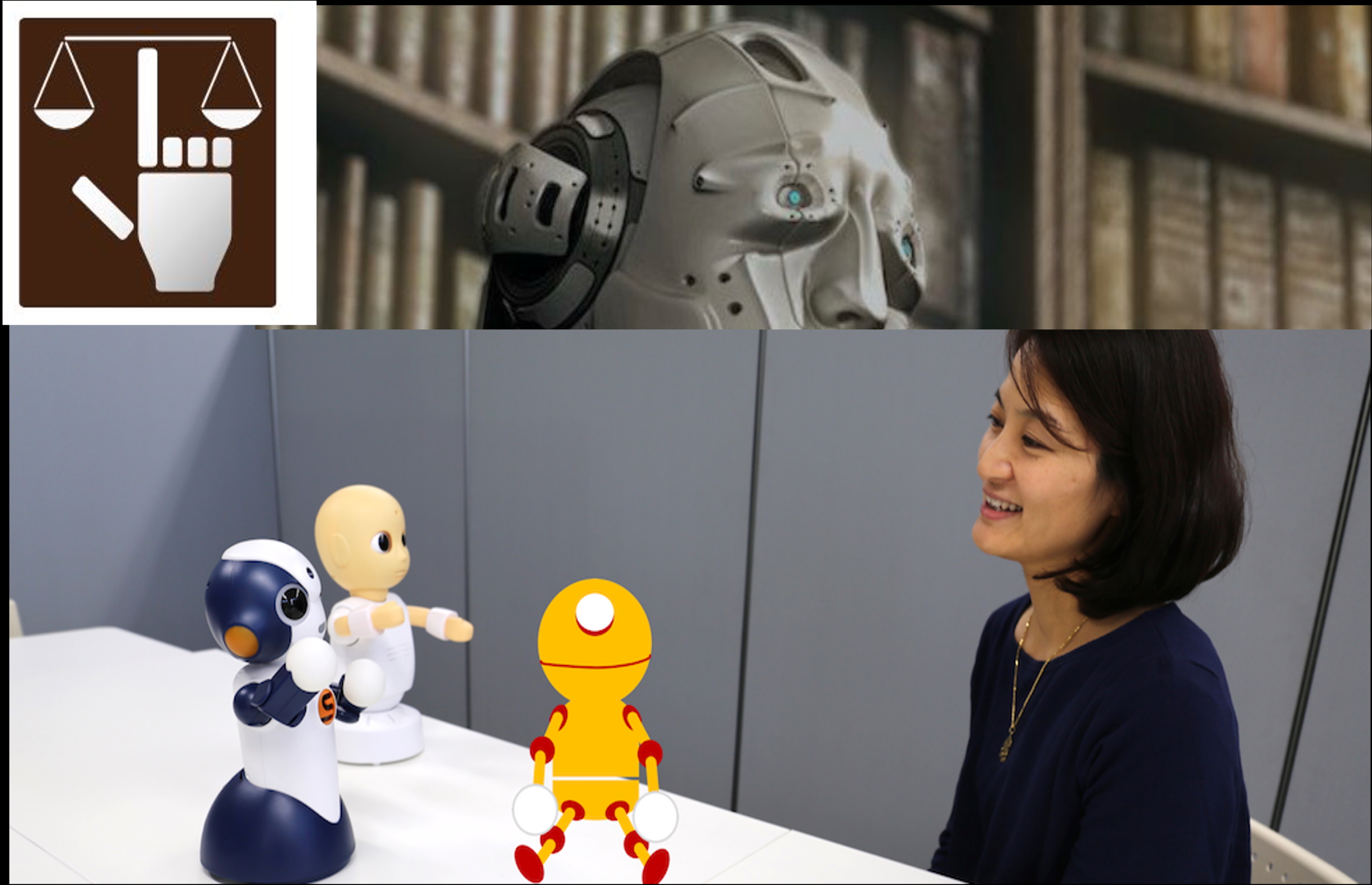Recent advances in AI and robotics are progressing at an astonishing speed, and their social implementation is steadily expanding. When artifacts incorporating cutting-edge technologies are introduced into our daily lives, various challenges arise. The JST RISTEX HITE project, “Legal Electronic Personality of Artificial Intelligence in a Familiar Society Based on the Examination of Autonomy” (R&D period: October 2017 – March 2021) [1,2,3], examined whether AI should be granted legal personality in light of the challenge that highly autonomous AI cannot be adequately addressed by existing legal systems in terms of responsibility allocation. Through neuroscience and robot experiments, the project explored the designability of AI’s autonomy, empathy, and morality, and analyzed public perceptions of attributing responsibility to AI via social psychology surveys. The conclusion was that, at present, there is little necessity to grant legal personality to AI, and that revisions to current legal systems and the development of new theories of liability remain as issues. The project produced significant outcomes aiming at the co-evolution of AI and society through collaboration between technology and law.
The subsequent JST RISTEX HITE project, “Distributive Principles of Legal Liability in Multi-Species Societies” (PI: Prof. Tatsuhiko Inatani, Kyoto University, January 2020 – September 2023) [4,5,6], explored new principles of legal responsibility allocation in societies where diverse “multi-species,” including humans, AI, and robots, coexist. Through interdisciplinary collaboration among law, psychology, engineering, and cultural anthropology, the project analyzed the formation of human agency, attribution of responsibility to AI, and the influence of cultural differences. The research demonstrated the limitations of existing modern legal frameworks and advanced proposals for legal policies and governance models to enable co-evolution with AI. The results were disseminated internationally, paving the way for social implementation.
Furthermore, the JST RISTEX RInCA project, “Transdisciplinary Study on the ELSI of Building Intimate Relationships between Humans and ‘Cohabitant’ Robots” (PI: Prof. Tatsuhiko Inatani, Kyoto University, October 2023 – March 2027) [7,8,9], aims to elucidate the ethical, legal, and social issues (ELSI) associated with forming intimate relationships with “cohabitant robots” and to propose governance frameworks and robot ethics conducive to social implementation. The project brings together law, robotics engineering, psychology, and cultural anthropology, conducting empirical experiments using Panasonic’s NICOBO and anthropological studies to explore the value of “misalignments” and polyphonic relationships that transcend conventional design principles. In FY2025, the plan is to deepen research on new legal systems and data/risk governance based on agile governance, promote international dialogue, validate ethical norms, and clarify the impact of cohabitant robots on social acceptance and the formation of human agency.
[1] http://www.ams.eng.osaka-u.ac.jp/ristex/
[2] Final Report
[3] Minoru Asada. Toward Constructing a Familiar Society: Empathy, Morality, and Ethics Brought About by Artificial Pain. Journal of the Robotics Society of Japan, Vol.37, No.4, pp.287–292, 2019.
[4] https://www.jst.go.jp/ristex/hite/community/project000423.html
[5] Final Report
[6] Tatsuhiko Inatani, Minoru Asada, and Hirofumi Katsuno. Rule of Law in the Age of AI: Distributive Principles of Legal Liability for Multi-Species Societies. Proc. of the 9th International Conference on Robot Ethics and Standards (ICRES 2024), pp.118–128, 2024.
[7] https://www.jst.go.jp/ristex/rinca/projects/jpmjrs23j2.html
[8] Minoru Asada. Agile Governance: Cognitive Developmental Robotics Perspective. Journal of the Robotics Society of Japan, Vol.43, No.1, pp.48–55, 2025.
[9] Minoru Asada and Yuji Kawai. Advancing Cognitive Developmental Robotics: Robot Pain as a Bridge from Embodiment to Societal Interaction – A Framework for Ethical and Societal Integration –, The 2025 International Conference on The AI Revolution: Research, Ethics, and Society, April 14-16, 2025, Las Vegas, USA.
